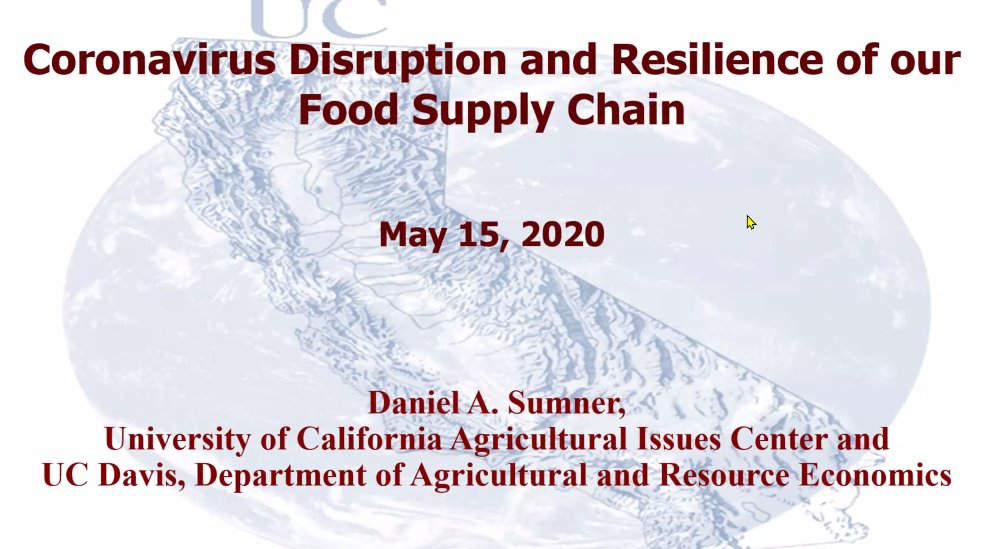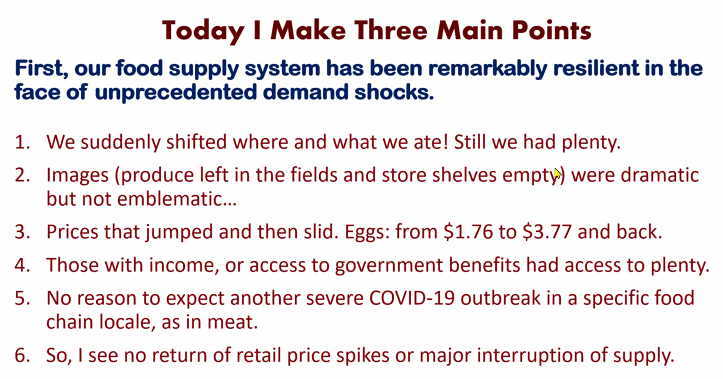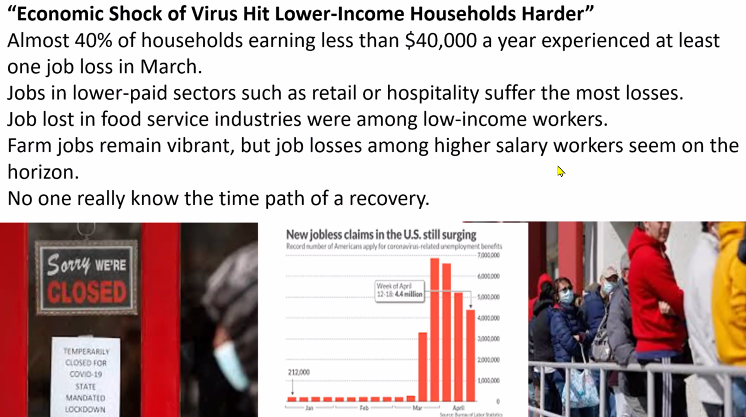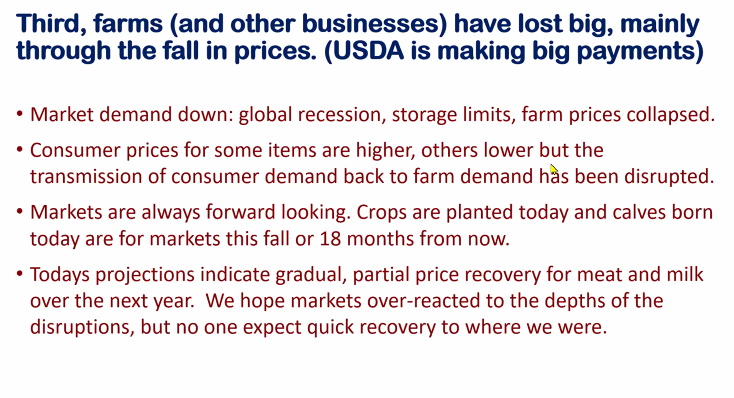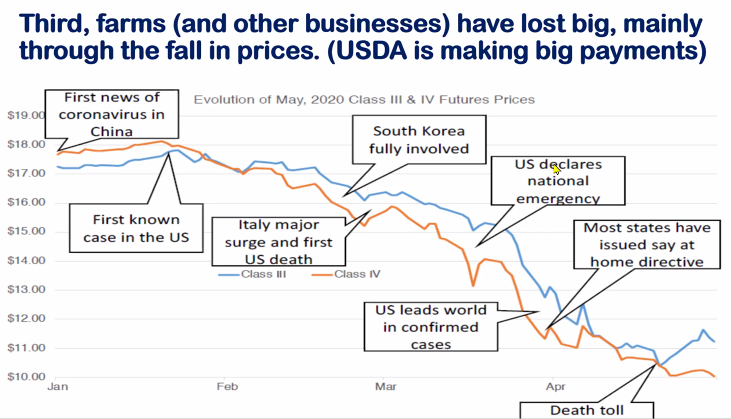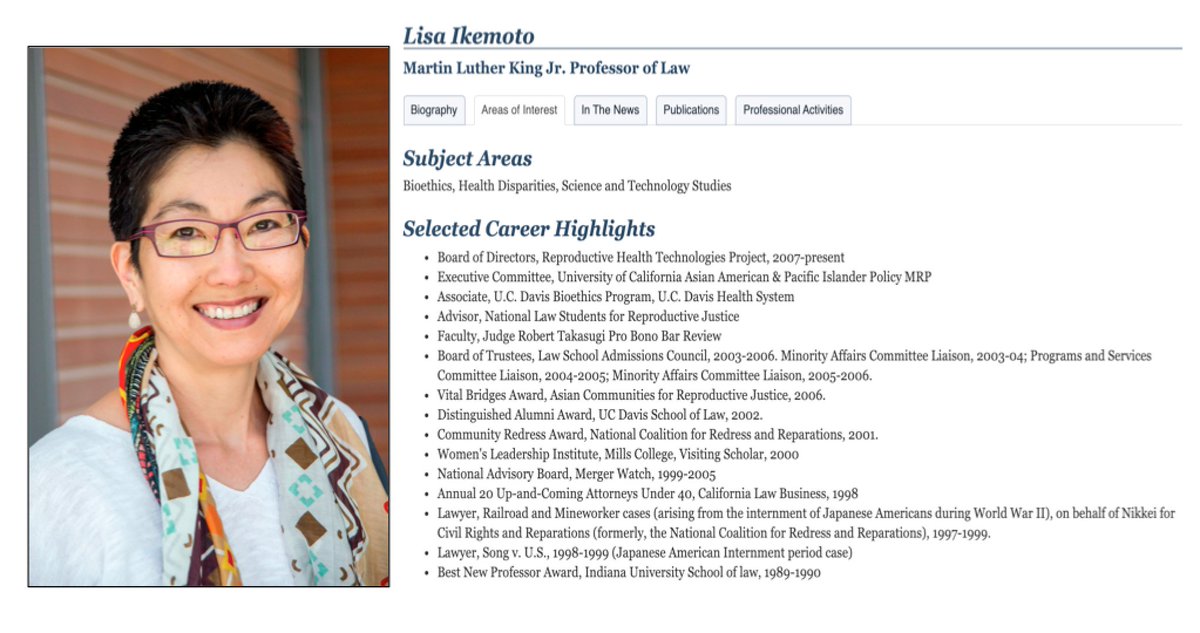Live streaming: facebook.com/ucdavisbiology/
#CovidTownHall #Covid19 1/
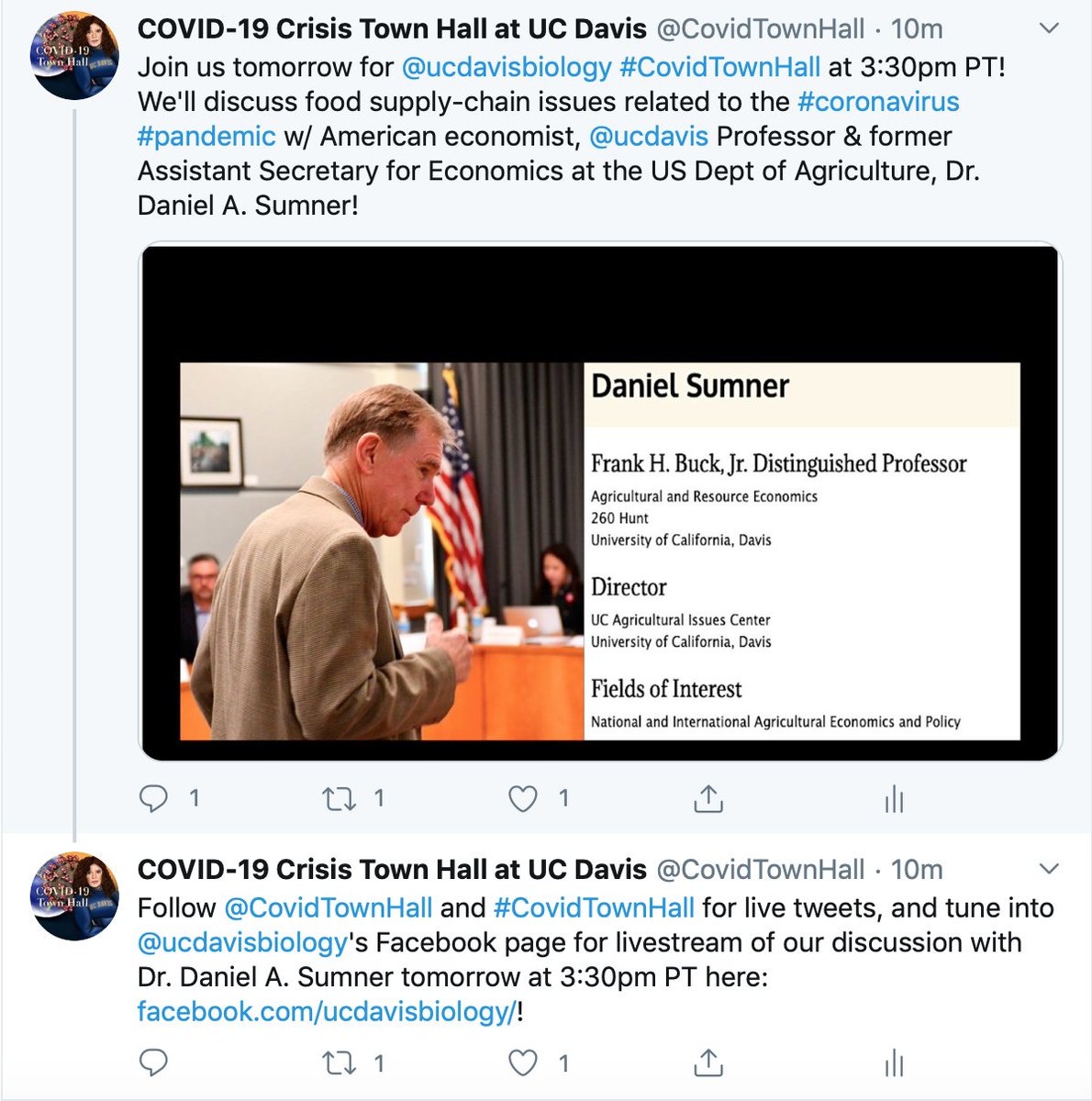
Savor: Food Shortages in a Pandemic. Event: Robert Mondavi Institute for Wine and Food Science. May 12, 2020.
rmi.ucdavis.edu/events/savor-f…
8/
Food Availability is ‘Not the Thing to Worry About’ During Pandemic. Ag Net West. May 4, 2020.
agnetwest.com/food-availabil…
As meat plants idle, California has no shortage of fish, dairy. NBC News. April 30, 2020.
nbcnews.com/news/us-news/m…
9/
'We're in pretty good shape' | Northern California unlikely to see meat shortage. ABC10. April 29, 2020.
abc10.com/article/news/h…
COVID-19 outbreak causing possible meat shortage across US. KRON4. April 26, 2020.
kron4.com/news/bay-area/…
10
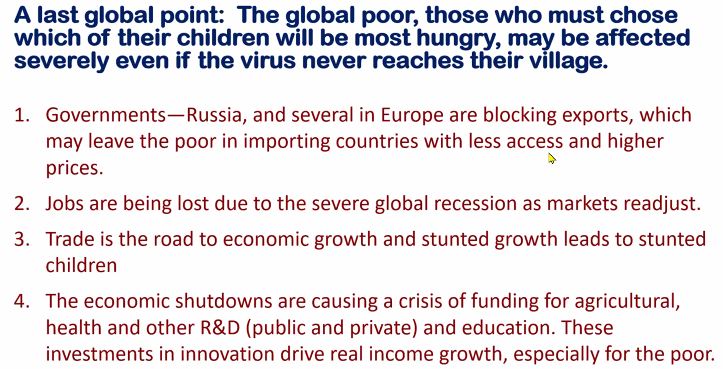
A: If this was a regular occurrence we'd be ready for it. We don't want to make everything 20% more expensive to create redundancy in system.
#COVID19 #CovidTownHall
A: We're ~ 1% vegetarian in US, but meat consumption is actually going up globally.
#COVID19 #CovidTownHall
#COVID19 #CovidTownHall
#COVID19 #CovidTownHall
#COVID19 #CovidTownHall
A: Most of us aren't buying those luxury goods, we're just buying the basics while we're hunkered down at home.
#COVID19 #CovidTownHall
#COVID19 #CovidTownHall
A: Lots of collaboration between biologists and economists.
#COVID19 #CovidTownHall
A: The key is to get income in people's hands. Government is good at that, not good at distribution. The last thing we want to do is having the government running grocery stores, in my opinion. #CovidTownHall
A: As the cost of labor has increased, move to tech is greater. We're moving in that direction. Less expensive to put machines on supply line if guidelines say you have to space people out.
Dr. Ken Kaplan: my local bakery went from selling baked goods to only selling baking supplies.
Dr. Kaplan: Opportunities in virology labs & vaccine development are up, perhaps.
Dr. Kaplan: It's a time to be engaged and be active.
#COVID19 #CovidTownHall

